Why aren’t there more women film directors?
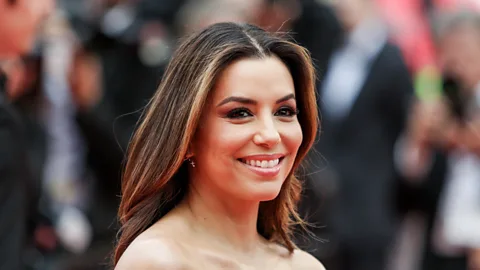 Alamy
AlamyThe number of female directors employed in the global film industry is still abysmally low. But much is being done to fix this, and women are leading the way, writes Harriet Constable.
“Sometimes women can’t ask for control, so they have to take it. Ok? I want you to that,” says Alex Levy, a character on Apple TV’s star-studded new drama The Morning Show. Levy, played by Jennifer Aniston, is in the middle of a career crisis, while her co-host (played by Steve Carrell) has been kicked off the programme because of a sexual misconduct scandal. She hangs up a phone call in utter frustration and turns to her daughter to deliver the line that summarises the collective rage of women overlooked for generations.
Read more about BBC Culture’s 100 greatest films directed by women:
- The 100 greatest films directed by women
- Is cinema waking up to racism and misogyny?
It’s fitting that The Morning Show, which centres on the shifting power dynamics between the sexes, is driven by women behind the scenes. Mimi Leder was one of three female directors on the programme and directed half of the first series. Aniston and co-star Reese Witherspoon were executive producers. With women in leadership roles, there came a ripple effect of equal representation throughout the production. Leder told The Hollywood Reporter: “The Morning Show is 50% women and people of colour and 50% male. There's gender parity on our show.”
The Morning Show initiative isn’t a one-off. Research from the Center for the Study of Women in Television and Film shows that movies with a female director “employed greater percentages of women writers, editors, cinematographers, and composers than films with exclusively male directors.” Actress and director Eva Longoria, who is set to direct two feature films in 2020, is an example of this trend. “I always start filling up slots with women and people of colour first, then if anything’s left, we will look elsewhere… So instead of unconsciously ignoring women or people of colour, I’m consciously hiring them,” she told The Guardian.
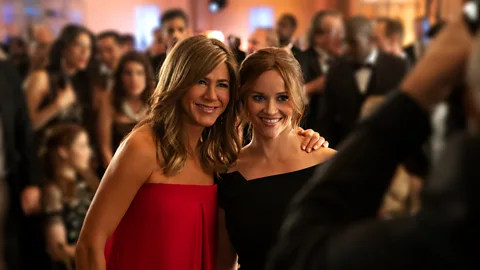 Apple TV+
Apple TV+That Hollywood’s top women are taking control is especially important when you look at the statistics. In the US, women comprised just 8% of directors working on the top 250 US domestic grossing films in 2018. That’s actually 1% below the number in 1998, and if you narrow it down to the top 100 grossing Hollywood films, the figure drops to just 4%. In the 90 years that the Academy Awards have been running, only five women have ever been nominated for a best director Oscar, and only one has ever won (Kathryn Bigelow in 2010 for The Hurt Locker).
This is not for a lack of talented women in the industry. Around the world there is an upward trend in the number of women directors taking on bigger and better projects in Hollywood, Bollywood, Nollywood and beyond. The Wedding Party, Nigeria’s highest-grossing movie of 2016, was directed by female filmmaker Kemi Adetiba. In China, women directed three of the top 10 grossing movies of 2018, one of which earned a whopping 1.36 billion yuan ($204 million) at the box office.
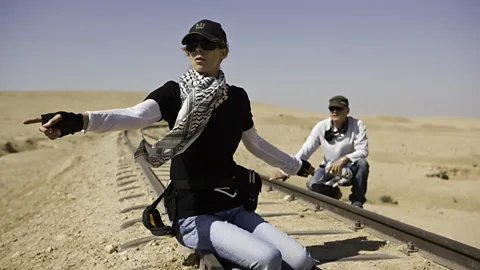 Alamy
AlamyIf there are plenty of talented women who want to make films, why aren’t there more female directors? Dame Heather Rabbatts, Chair of Time’s Up UK, a group which was founded in 2018 by some of Hollywood’s most high-profile actresses in response to the #MeToo movement, gives two reasons. One: “people tend to recruit in their own image,” ie the majority of directors are male, and they hire men. Two: “[directing] has not been a role where women have seen many other women role models.” In other words, because directing has been almost solely a male preserve, many women might only now be waking up to the reality that directing is a possibility for them. “The more that we see women directors coming through, the greater encouragement that will give to other women to believe that they too can do these roles,” she concludes.
One top Hollywood director paving the way and speaking up for other female filmmakers is Ava DuVernay. Earlier this month, when the Academy Awards announced its decision to disqualify the female-directed Nigerian film Lionheart from its best international feature film category, she tweeted her criticism: “To @TheAcademy, You disqualified Nigeria’s first-ever submission for best international feature because it’s in English. But English is the official language of Nigeria. Are you barring this country from ever competing for an Oscar in its official language?” In response, the film’s director Genevieve Nnaji thanked DuVernay. “This movie represents the way we speak as Nigerians,” she wrote.
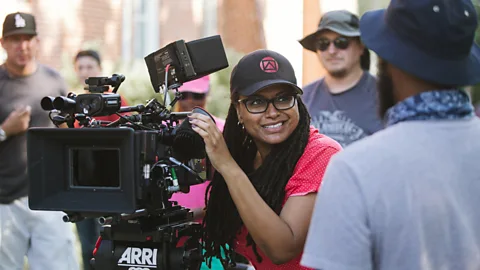 Alamy
AlamyWhile there are clearly many barriers to opportunity for women directors, actress Victoria Emslie believes in the power of women at the top calling out issues and pushing for change. “There is a part that all of us can play to change the conversation, but if you have some privilege you are in a much better position to be doing this and pave the way for others to do the same,” she tells BBC Culture.
Another challenge is studios claiming they can’t find female directors. “We hear the same excuses arising time and time again, my favourite of all being ‘Where are all the women?’” Her response was to launch Primetime, a global database for women behind the camera. “As someone who has always jumped at problem solving, I wanted to take at least this one excuse off the table,” she says.
Tipping point
There are now multiple worldwide initiatives geared to increasing the numbers of female directors, as well as writers, producers and cinematographers. One brand new talent-discovery solution is Free the Work, launched by director Alma Har’el in October 2019, which she describes as a hybrid between Spotify and IMDb. It follows Free the Bid, which Har’el launched over a decade ago when she realised women were being excluded from opportunities to direct ads. The initiative had enormous success, increasing the number of women directors at some agencies by 400%. “We’re going to do for film what we did for commercials,” said Har’el, speaking at an event during the BFI London Film Festival where she was promoting her new film Honey Boy. Other examples like this include The Topple List, a Google spreadsheet of women, people of colour and disabled filmmakers and Film Fatales, a global community for female filmmakers to find opportunities and collaborate.
Lobbying is another tactic: in 2019, in response to the statistic that women directed just 4% of the top films from the past decade, Time’s Up and The Annenberg Inclusion Initiative launched the 4% Challenge. It asks producers and actors to commit to a woman-helmed project within the next 18 months in an attempt to bolster numbers. Major studios like Working Title and Universal have now signed the pledge, which Dame Rabbatts says is encouraging: “It won’t change overnight sadly but we all feel that the industry is responding and responding positively.”
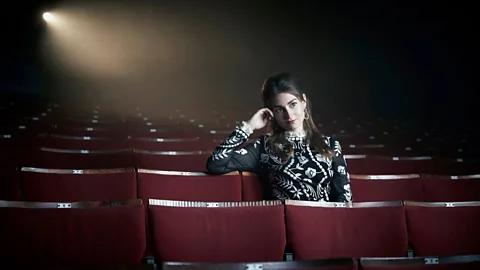 Jonathan Ford
Jonathan FordOne challenge has been to entice studios to take a chance on first-time directors. According to Dr Martha M Lauzen, Professor and Executive Director of the Center for the Study of Women in Television and Film at San Diego State University and author of The Celluloid Ceiling, stereotypes about women's skills and ambition are a powerful barrier to entry. “As long as women are perceived to be ‘a risk’ they will be hired at a lower rate than their male counterparts,” she says. In response, Dame Rabbatts says: “What we’re trying to do is to say [hiring a] first-time director is always a leap of faith, but you should have faith in those women candidates as you do with their male counterparts.”
That major studios are taking the 4% Challenge seriously is vital according to Dr Lauzen, who says: “Without a widespread will to change on the part of the major players – the studios, talent agencies, guilds, and associations – no voluntary remedy will be effective.”
The one where women get to be directors
The rise in streaming platforms and the popularity of multi-episode series seems to be opening up opportunities for female filmmakers around the world. In India, several Netflix films are led by women including Guilty, directed and written by Ruchi Narain, and Ghost Stories, directed by Sooni Taraporevala. There’s an alchemy of complementary factors according to Dame Rabbatts: “having that competition against the backdrop of a rising voice of female talent is what gives us an interesting moment,” she says.
As steaming services expand their plans in North Africa and the Middle East and look for more original content, there could be a particular opportunity for Arab female filmmakers too. A 2016 report by the Doha Film Institute showed that independent Arab films are twice as likely to be directed by a woman, yet they also tend to be excluded from mainstream cinemas (read: opportunities to have your work seen) – but Netflix will give them a whole new platform.
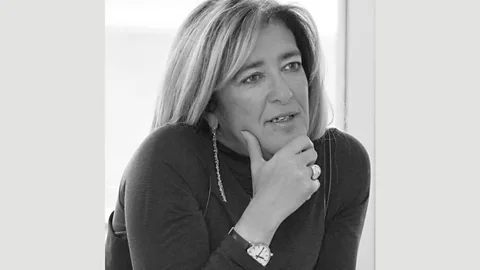 Times Up
Times UpSeveral film festivals are specifically focused on promoting female filmmakers, including the Cairo International Women’s Film Festival in Egypt, the Barcelona International Women’s Film Festival, the China Women’s Film Festival in Hong Kong, Ndiva Women’s Film Festival in Ghana and the Seoul International Women’s Film Festival in South Korea. In , organisation Le Collectif 50/50 is working to ensure that male and female-directed films receive equal footing at all film festivals.
Wide-ranging improvements are what’s needed, according to Dame Rabbatts. “To change a culture, and to change a culture in a way that is sustainable, requires a series of interventions at multiple levels which then gets you to a tipping point… these all together create the shift,” she says. Having described 2018 as a “year of reckoning” and 2019 as a “year of action”, she says 2020 must be a “year of resolve”. “The danger when you create a movement is that you either step off the gas or you think ‘let’s have many more new initiatives’. It’s not – it’s about staying focused on what we’re trying to do. This isn’t just about how we get women directors up in of their recognition – now it’s about them staying there”.
Read more about BBC Culture’s 100 greatest films directed by women:
- The 100 greatest films directed by women
- Is cinema waking up to racism and misogyny?
How many of the films have you seen? Let us know using the hashtag #100FilmsByWomen.
Love film? BBC Culture Film Club on Facebook, a community for film fanatics all over the world.
If you would like to comment on this story or anything else you have seen on BBC Culture, head over to our Facebook page or message us on Twitter.
And if you liked this story, sign up for the weekly bbc.com features newsletter, called The Essential List. A handpicked selection of stories from BBC Future, Culture, Worklife and Travel, delivered to your inbox every Friday.
